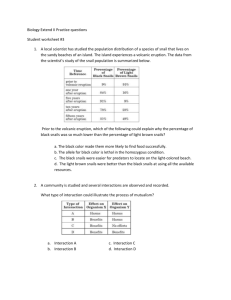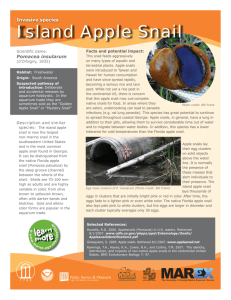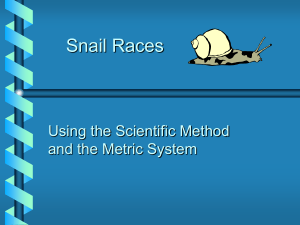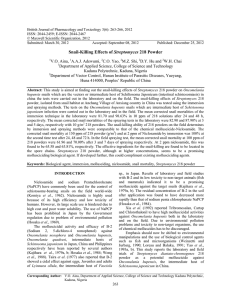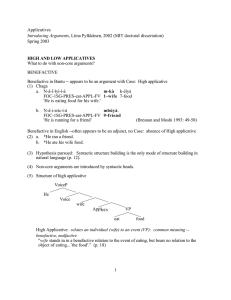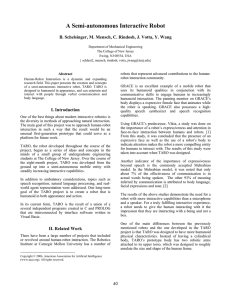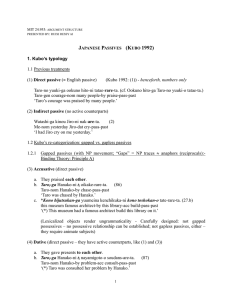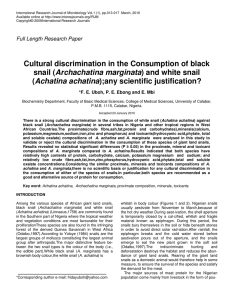Pomacea canaliculata The Invasion of Apple Snails into Hawai'i:
advertisement
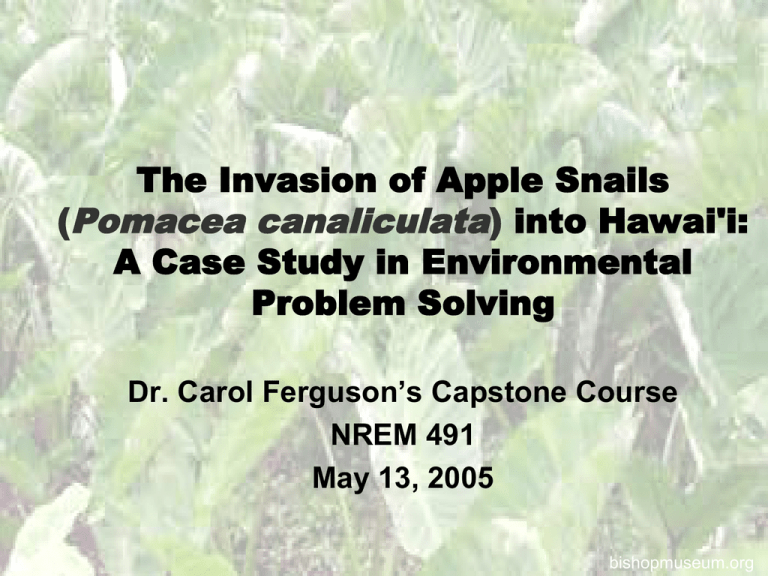
The Invasion of Apple Snails (Pomacea canaliculata) into Hawai'i: A Case Study in Environmental Problem Solving Dr. Carol Ferguson’s Capstone Course NREM 491 May 13, 2005 bishopmuseum.org The Problem • Apple Snails (Pomacea canaliculata)introduced in 1989. • Fast breeding and adaptability contribute to the rapid spread of apple snails. Primary Impacts: • Taro (kalo; Colocasia esculenta) is a culturally sacred food source. Secondary Impacts: • Aquatic ecosystems. Methods of Snail Spread • Snails float downstream (ditches, streams, canals) • Muddy vehicles and equipment • People • Huli transfer dpi.qld.gov.au/extra/aquaticinvaders • Intentional dumping Costs of Snail Impacts Snail invasion of taro fields can: • Lower yields of taro crops • Result in snail management costs- labor, time, cost of control methods Honoluluadvertiser.com Which results in: • Loss of lifestyle and food source for farmer • Economic problems • Cultural loss honolulupoi.com Eliminated Options Chemical control: • environmental impacts. Everglade Kite: • competition, interbreeding, importation. Fish: • difficult to manage, invasive. Water level change: • reduces taro yield. animaltrial.com gregisfishing.com Methods of Snail Control • Biological Plants • Natural Control • Biological Animals • Community Programs Biological Plants • Phytochemicals found in all parts of the plant are toxic to apple snail. • Act as attractants or poisons. • Most are not found in Hawai’i. Includes: • papaya leaves (Carica • banana leaves (Musa x papaya L.) • • paradisiaca L.) starflower (Calatropis giganta) neem tree (Azadirachta indica). texasriviera.com Biological Animals • Cayuga ducks (Anas rubripes) • Let free in the taro patch (lo’i) to feed on baby snails. • Life span averages 30 years. Ako, H. (2005) Natural Control Methods • Handpicking Ako, H.(2005) • Knocking off or removing eggs. dep.state.fl.us/cental • Mesh nets/screens stanwoodcorp.com Cultural/Social Methods: Community Programs Positive Aspects • Community/consumer involvement • Federal grants available • Paid program positions • Program could be an example for other invasive species management • Work is done within the taro ecosystem slcc.edu

